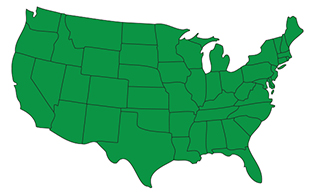
Creeping Bentgrass
Agrostis palustris
Creeping Bentgrass is a perennial grass that is also known as Wire-grass Drop-seed or by its scientific name, Agrostis palustris. It is often considered to be a lawn weed when present among other grass species.
Identify

Stolons

Membranous

Rolled
When acting as an invasive type of grass, Creeping Bentgrass can be identified as a low-growing, fine-bladed perennial grassy weed. It has a creeping growth habit that spreads by long, vigorous stolons. This lawn weed has a tall, rounded ligule, a narrow and smooth sheaths that aren't compressed. It also features narrow blades that are flat, veined and rough along the edges.
Life Cycle
When not an invasive lawn weed, Creeping Bentgrass is commonly used on golf courses and other athletic fields. Creeping Bentgrass thrives throughout much of North America. These perennial grasses can germinate and spread from seeds, but they also produce a root structure (tubers, bulbs or corms) that can birth new weeds from your lawn’s surface (using stolons) or from underground (using rhizomes). Perennial grassy weeds live two or more years and have a deeper root structure that can give rise to new weeds—even if you no longer see the weeds in your lawn.

Care
Creeping Bentgrass is most commonly used for putting greens on golf courses and has the ability to creep into areas where it is not a desired type of grass. Creeping Bentgrass is also a common contaminate in cool-season turf grass seed. This grass can spread aggressively and cannot be easily controlled using cultural methods such as hand-pulling lawn weeds or proper watering and mowing. For weed removal, professionally applied weed control treatments are recommended for complete eradication.




Facebook
X
Youtube
Copy Link
Email